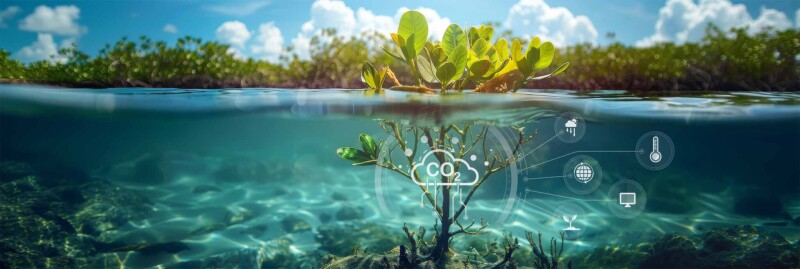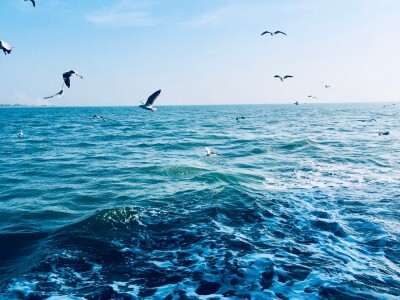Seefeld, Austria | December, 2024 - The estimates by the Intergovernmental Panel for Climate Change (IPCC) of increasing extreme weather events, as well as rising sea-levels and temperatures call for urgent action. In view of these threats and dramatic biodiversity loss, the new European innovation project COASTS is dedicated to strengthening coastal sustainability and resilience.
COASTS — an acronym for Coastal Observation Advances leveraging Space Technology Services — addresses information demands on coastal processes and blue carbon ecosystems. The project team led by EOMAP aims to fill important knowledge gaps through the integration of earth observation, advanced modelling, surveying, and digital tools, and by co-designing fit-for-purpose solutions together with local stakeholders at pilot sites.
“Combining satellite data and geospatial analyses with ground-based research, COASTS will initially focus on three pilot sites in Europe and the Maldives. The learnings from these examples will form a blueprint for other regions”, said Mona Reithmeier, COASTS project manager at EOMAP.
The pilot areas within COASTS have an immediate demand and support the project: “Areas like the Maldives which face severe threats from climate change related impacts need actionable data and targeted risk intelligence. And we need this fast. We expect COASTS to strengthen evidence-based decision-making around coastal developments, facilitate impact-based early warnings, and provide an understanding of the potential of nature-based solutions for blue carbon ecosystems“, explained Nashwan Matheen of the Maldives Space Research Organisation (MSRO).
COASTS is a joint development of EOMAP, Fugro, Submaris and MSRO. Each partner contributes with their dedicated expertise.
“Coastal biodiversity is heavily affected by global change. These habitats play a central role, as they also serve as blue carbon storage. By providing in situ data on seagrass habitats in Germany, Jersey and on the Maldives and their health, we aim to enrich the modelling capacities of COASTS and drive restoration efforts worldwide”, said Philipp Schubert of the scientific diving group Submaris.
In addition to supporting data-driven sustainable decisions on coastal ecosystems, the in-depth analyses of COASTS are set to encourage new business models on emerging blue carbon markets. This can open new income sources for countries with blue carbon ecosystems.
“By leveraging our Geo-data expertise, we are advancing next-generation coastal mapping, modelling, and monitoring through the COASTS project. We believe these comprehensive insights will not only support policy updates but also open new markets and enhance coastal resilience in some of the world’s most vulnerable regions,” stated Pooja Mahapatra of Fugro. As global pressures on coastal environments continue to mount, the project team strives to ensure that the world’s coastlines remain resilient and capable of supporting both biodiversity and local communities.
The 3-year project COASTS is funded by EUSPA Space, Horizon Europe 2023.
Source: Press Release






